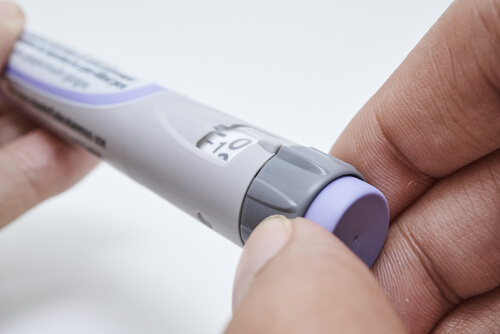
Byetta

The Driscoll Firm, LLC, is investigating cases of pancreatitis (inflammation of the pancreas) and the possibility of the development of pancreatic cancer among users of the diabetes drug Byetta (exenatide).
The U.S. Food and Drug Administration (FDA) said in March 2013 that it was evaluating studies that suggest that there is an increased risk of pancreatitis and the development of pre-cancerous cells in patients with type 2 diabetes who were treated with a class of drugs called “incretin mimetics.” Byetta, a Bristol-Myers Squibb product, is the most widely used among several of the incretin mimetic drugs prescribed to diabetics.
If you or a family member of yours has developed pancreatitis, pancreatic cancer or other problems with the use of Byetta, contact the defective medical products lawyers of the Driscoll Firm, LLC, today. We can review your case and help you determine your legal options, including the possibility of obtaining compensation to assist you with medical expenses and other losses. Call our toll-free number or complete our online form for a free consultation.
Why is Byetta a Problem?
The FDA says “unpublished new findings by a group of academic researchers” suggest that Byetta and other drugs called “incretin mimetics” may cause an increased risk of pancreatitis and pre-cancerous cellular changes called “pancreatic duct metaplasia.”
The FDA doesn’t identify the researchers whose work concerns the agency, but the Johns Hopkins University School of Medicine reported in a February 2013 edition of the journal JAMA Internal Medicine that patients who take incretin mimetics have double the risk of being hospitalized with acute pancreatitis.
Incretin mimetics work by mimicking the incretin hormones that the body usually produces naturally to stimulate the release of insulin in response to a meal, the FDA says. The drugs are prescribed along with diet and exercise to help patients with type 2 diabetes control their blood sugar.
The drugs in the incretin mimetic class include:
- Exenatide (sold as Byetta and Bydureon)
- Sitagliptin (Januvia, Janumet, Janumet XR, Juvisync)
- Liraglutide (Victoza)
- Saxagliptin (Onglyza, Kombiglyze XR)
- Alogliptin (Nesina, Kazano, Oseni)
- Linagliptin (Tradjenta, Jentadueto).
The FDA warned the public that it had received reports of acute pancreatitis, including both fatal and serious nonfatal cases, associated with the use of the incretin mimetic drugs exenatide (Byetta) in 2007 and sitagliptin (Januvia) in 2009.
Byetta and Bydureon are injectable diabetes medications that are produced by Bristol-Myers Squibb. Merck & Co. produces Januvia and other products made with sitagliptin. The other incretin mimetic drugs approved for use by diabetics are made by Novo Nordisk, Eli Lilly and Co., and Takeda Pharmaceuticals.
What Should a Byetta User Do?
First, consult your health care provider. The FDA says that patients should continue to take Byetta or other incretin mimetic drugs as directed until they talk to their health care professional.
At the Driscoll Firm, LLC, we also advise you to talk to your doctor before changing your use of any prescribed medication. Your personal doctor will understand your medical needs.
Second, contact a defective medical products lawyer. You may be eligible for compensation through a legal claim known as a “product liability lawsuit.” Product liability law enables injured patients to seek funds for their medical expenses and for their pain and suffering and loss of enjoyment of life.
The Driscoll Firm, LLC, has assisted victims of defective pharmaceuticals (drugs) across the U.S. The financial compensation obtained from successful lawsuits has helped many individuals and families through difficult and expensive illnesses and as they have recovered from the loss of a loved one.
Our Byetta cancer risk lawyers can investigate your case if you have suffered pancreatitis or related symptoms after using Byetta. We will explore every possible legal option.
Contact us for a free initial consultation. If we can help you further, all of our legal work will be done on a contingency fee basis. Call us toll-free or complete our online form to get started on your case today.
For more information:
- FDA Drug Safety Communication: FDA investigating reports of possible increased risk of pancreatitis and pre-cancerous findings of the pancreas from incretin mimetic drugs for type 2 diabetes, U.S. Food and Drug Administration
- FDA Investigates Safety of Type 2 Diabetes Drugs Januvia And Byetta, Medical News Today
- FDA probe of diabetes drugs hurts makers’ stock, The Associated Press







